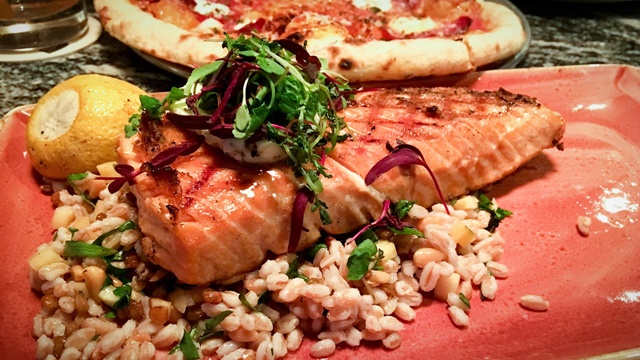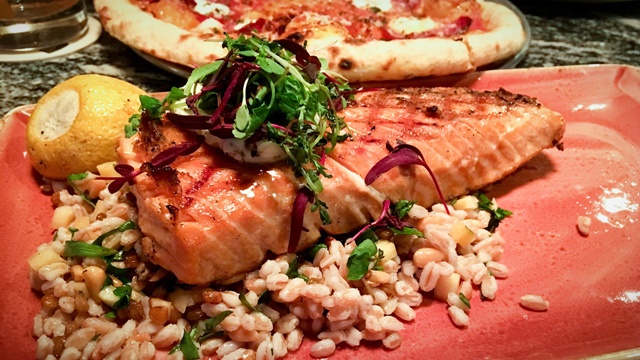The coronavirus presents many uncertainties, and none of us can completely eliminate our risk of getting COVID-19. But one thing we can do is eat as healthily as possible. If we do catch COVID-19, our immune system is responsible for fighting it. Research shows improving nutrition helps support optimal immune function.
Micronutrients essential to fight infection include vitamins A, B, C, D, and E, and the minerals iron, selenium, and zinc. Here’s what we know about how these nutrients support our immune system and the foods we can eat to get them.
1. Vitamin A
Vitamin A maintains the structure of the cells in the skin, respiratory tract and gut. This forms a barrier and is your body’s first line of defence. If fighting infection was like a football game, vitamin A would be your forward line.
We also need vitamin A to help make antibodies which neutralize the pathogens that cause infection. Vitamin A is found in oily fish, egg yolks, cheese, tofu, nuts, seeds, whole grains and legumes.

2. B vitamins
Regional Consultation Meeting on “Promoting Nutrition Sensitive...

B vitamins, particularly B6, B9 and B12, contribute to your body’s first response once it has recognized a pathogen. They do this by influencing the production and activity of “natural killer” cells. Natural killer cells work by causing infected cells to “implode”, a process called apoptosis.

At a football match, this role would be like security guards intercepting wayward spectators trying to run onto the field and disrupt play. Fish is a good source of vitamin B6. B6 is found in cereals, legumes, green leafy vegetables, fruit, nuts, fish, chicken and meat.
3. Vitamins C and E
When your body is fighting an infection, it experiences what’s called oxidative stress. Oxidative stress leads to the production of free radicals which can pierce cell walls, causing the contents to leak into tissues and exacerbating inflammation.
Vitamin C and vitamin E help protect cells from oxidative stress. Vitamin C also helps clean up this cellular mess by producing specialized cells to mount an immune response, including neutrophils, lymphocytes and phagocytes. Good sources of vitamin C include oranges, lemons, limes, berries, kiwifruit, broccoli, tomatoes and capsicum. Vitamin E is found in nuts, green leafy vegetables and vegetables oils.
4. Vitamin D
Some immune cells need vitamin D to help destroy pathogens that cause infection. Although sun exposure allows the body to produce vitamin D, food sources including eggs, fish and some milks and margarine brands may be fortified with Vitamin D (meaning extra has been added).
Most people need just a few minutes outdoors most days. People with vitamin D deficiency may need supplements. A review of 25 studies found vitamin D supplements can help protect against acute respiratory infections, particularly among people who are deficient.
5. Iron, zinc, selenium
We need iron, zinc and selenium for immune cell growth, among other functions. Iron helps kill pathogens by increasing the number of free radicals that can destroy them. It also regulates enzyme reactions essential for immune cells to recognize and target pathogens.

Whole grain foods contain a variety of important nutrients. Zinc helps maintain the integrity of the skin and mucous membranes. Zinc and selenium also act as an antioxidant, helping mop up some of the damage caused by oxidative stress. Iron is found in meat, chicken and fish. Vegetarian sources include legumes, whole grains and iron-fortified breakfast cereals. Zinc is found in oysters and other seafood, meat, chicken, dried beans and nuts. Nuts (especially Brazil nuts), meat, cereals and mushrooms are good food sources of selenium.
Source: theconversation.com






































